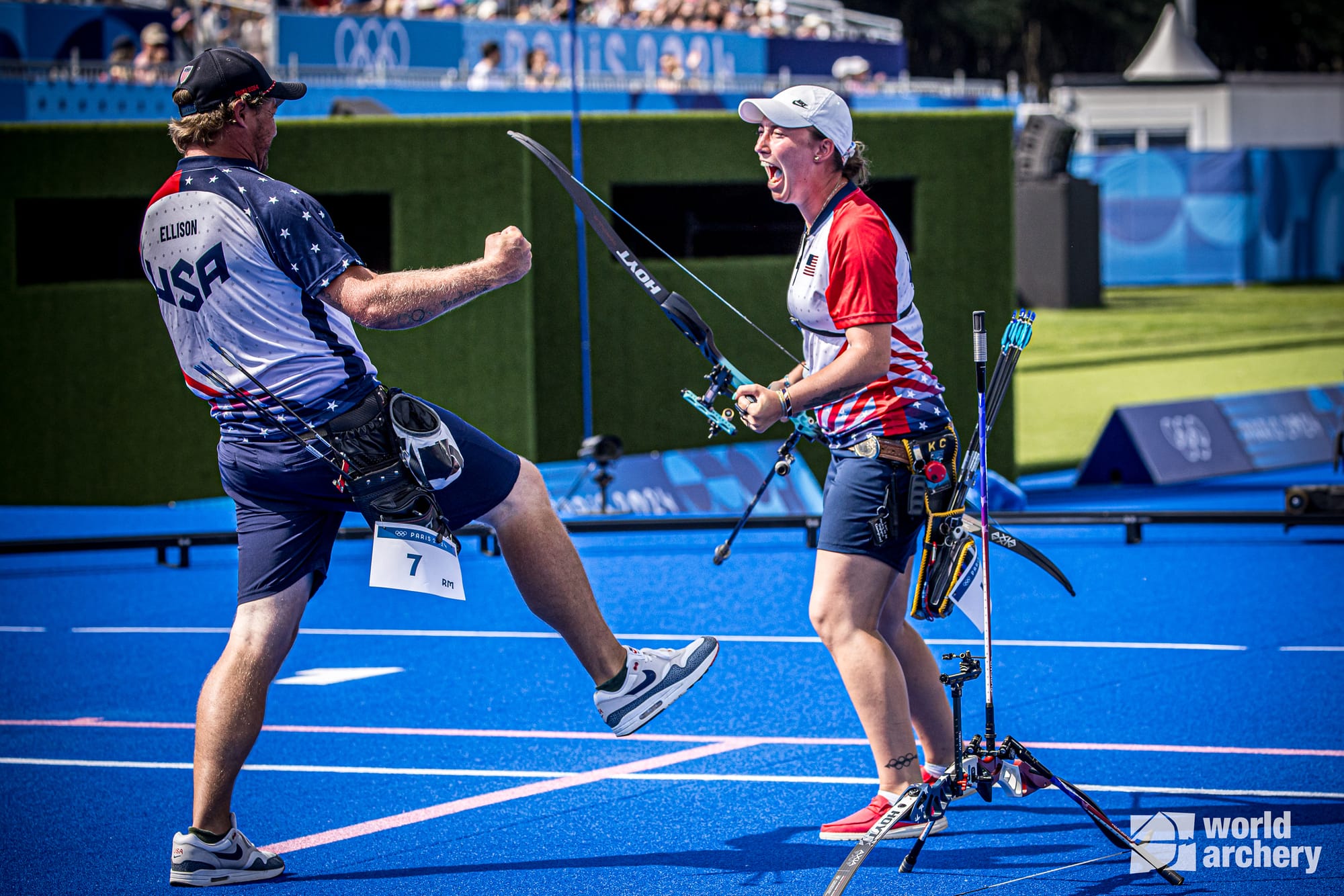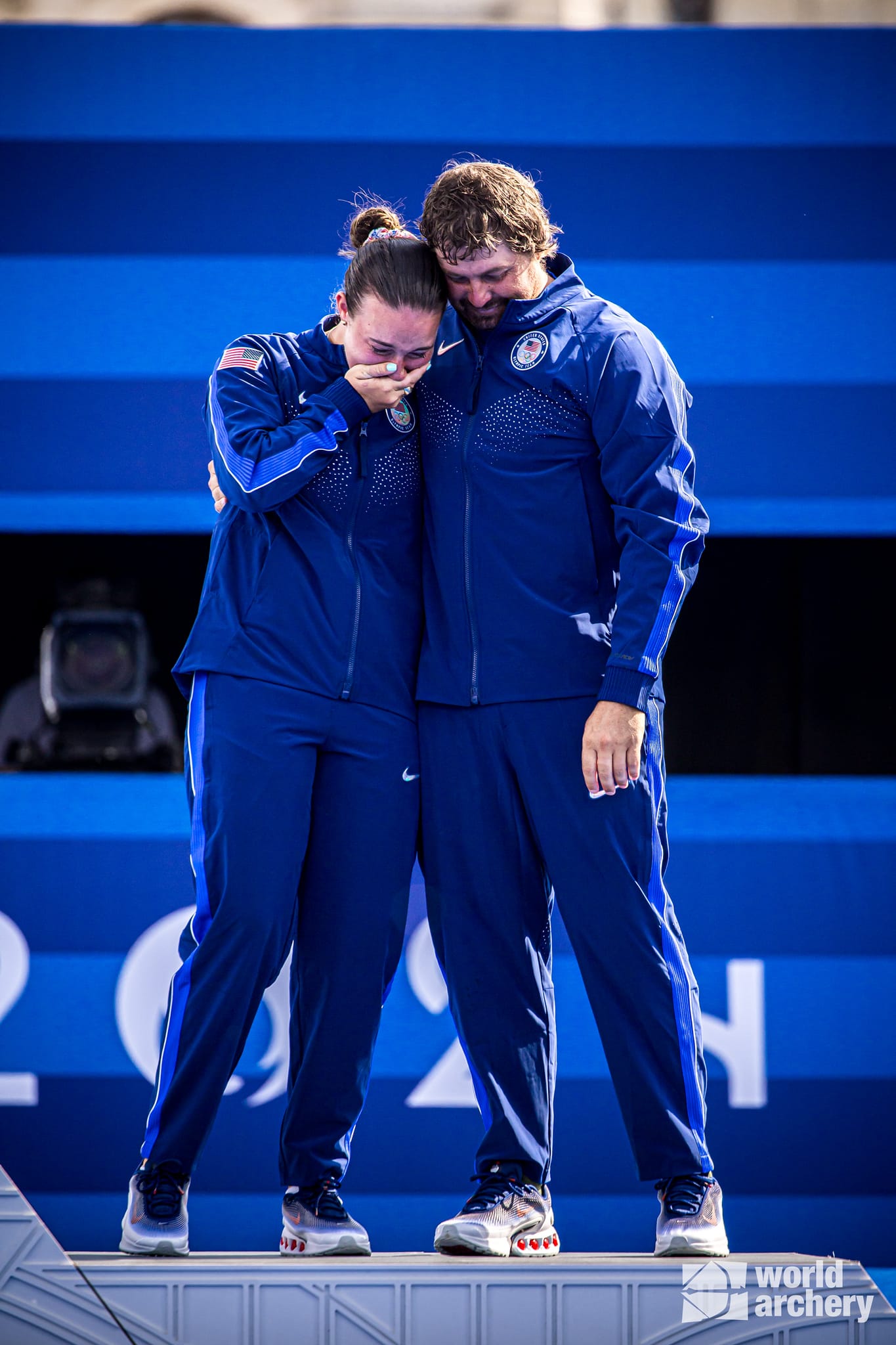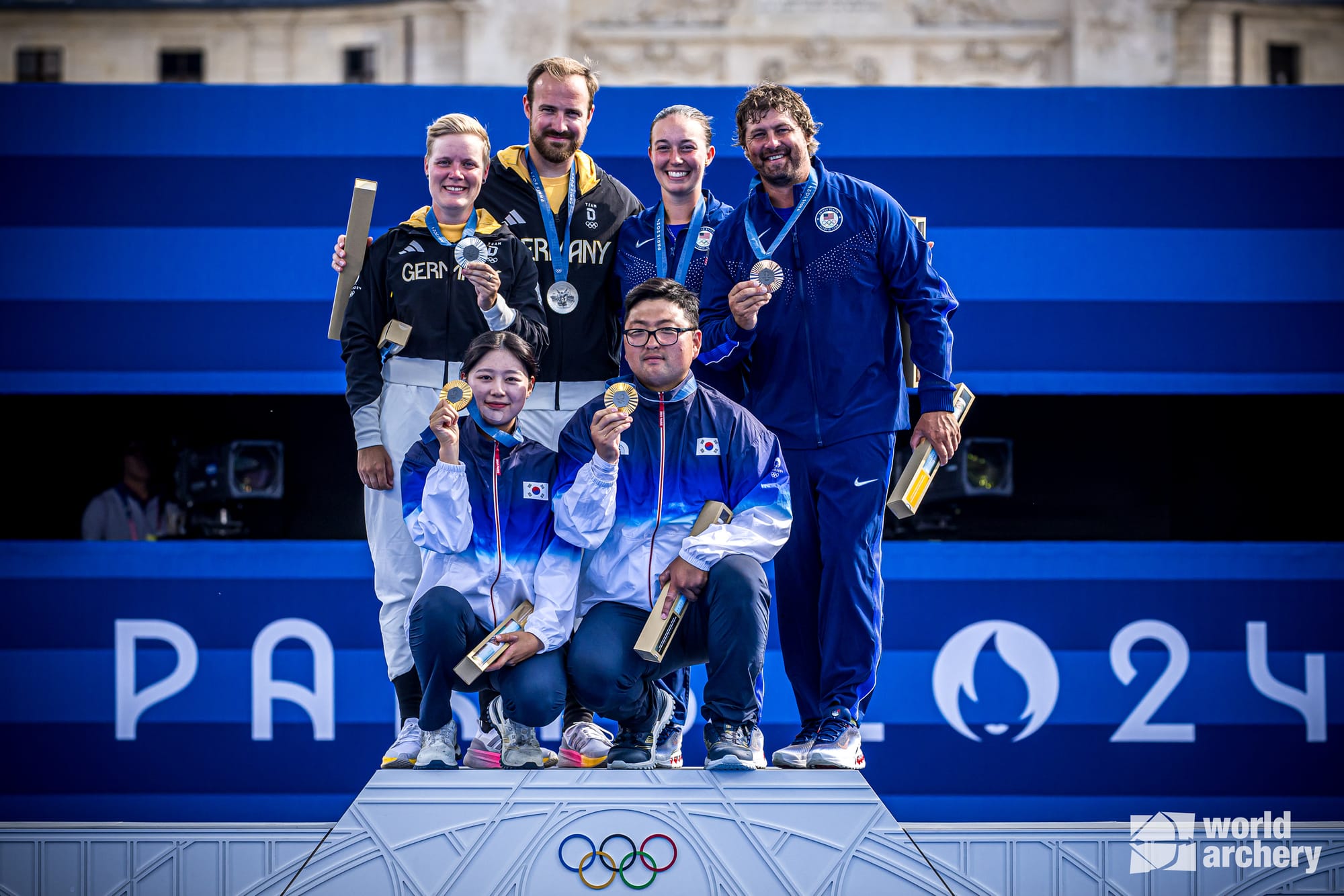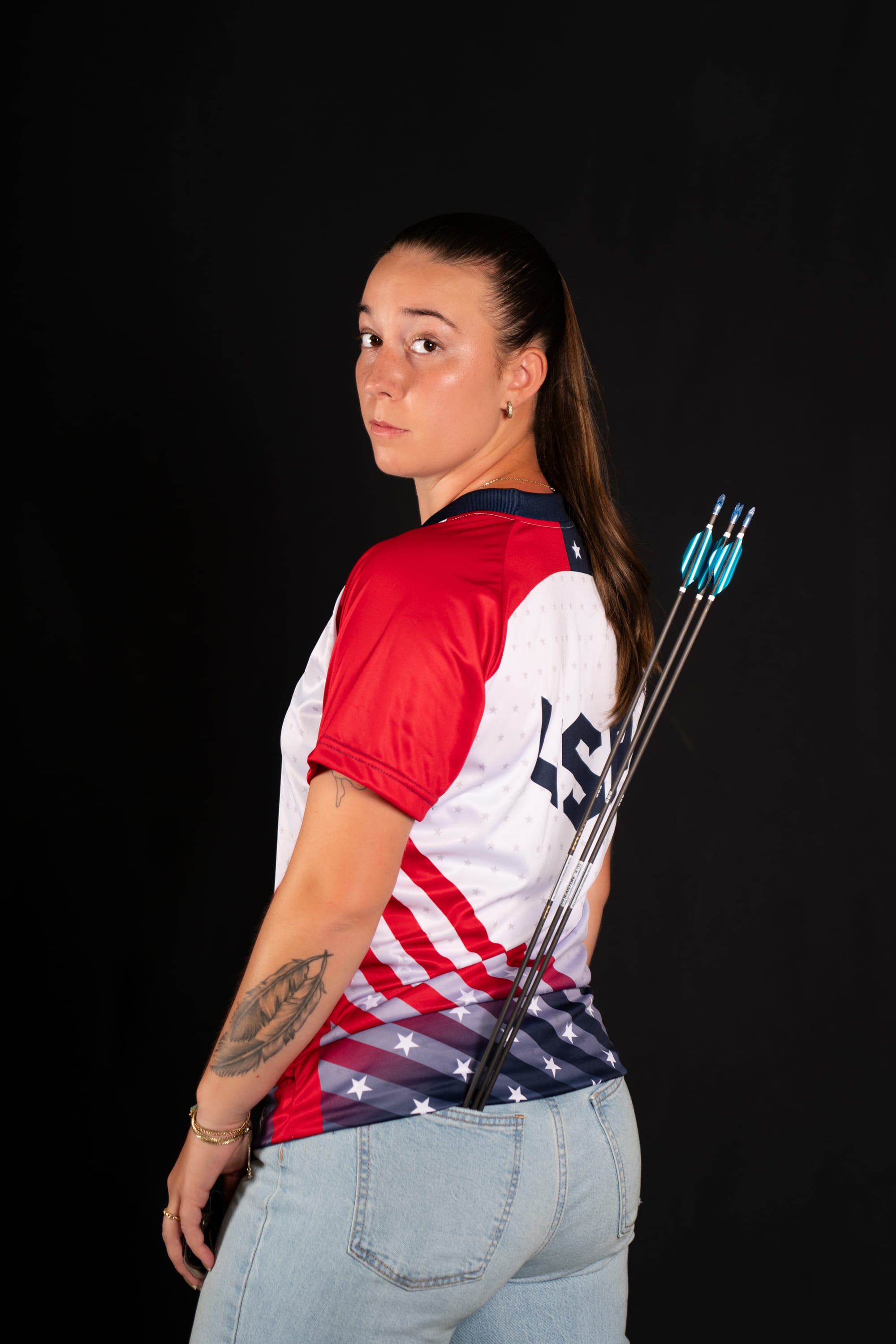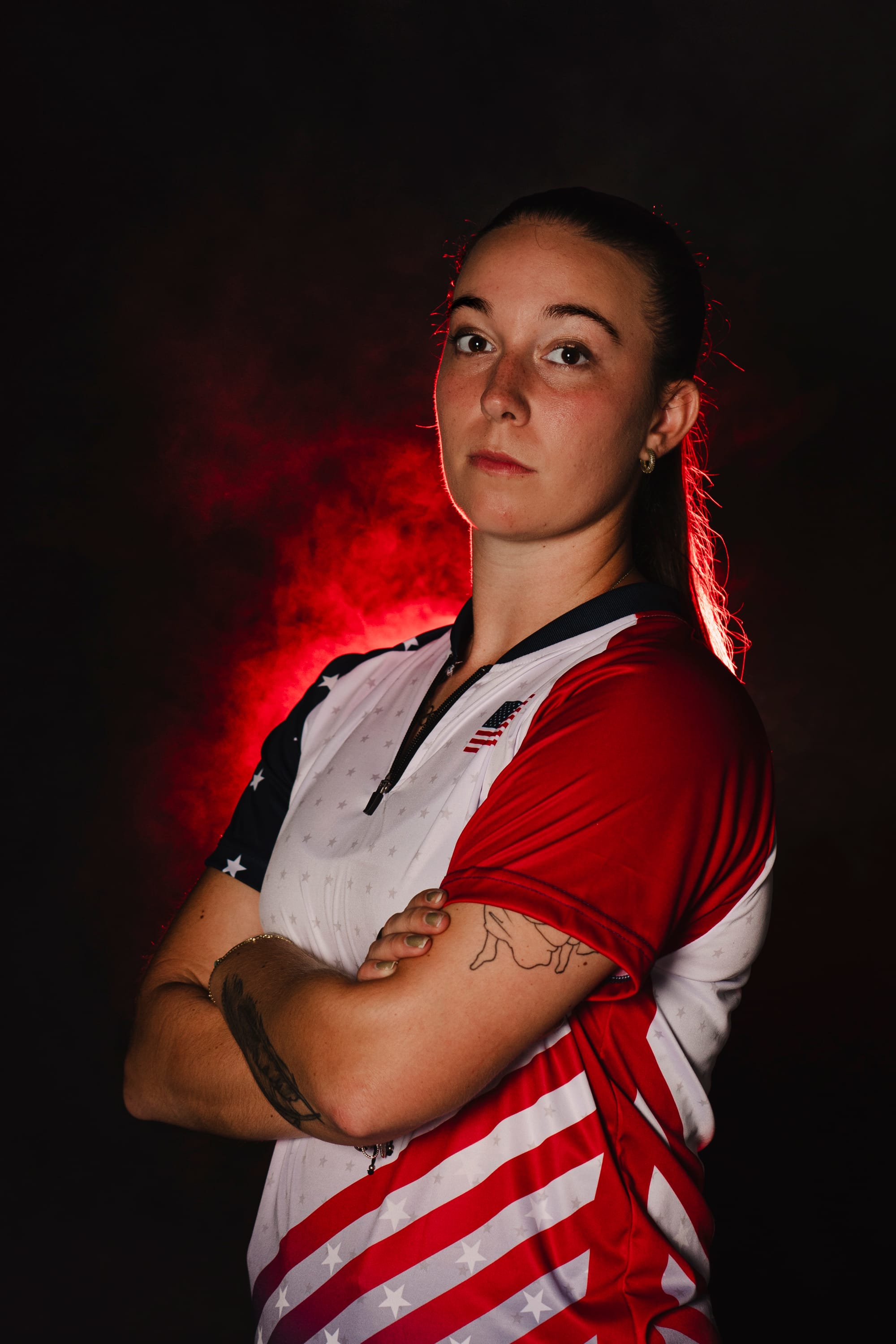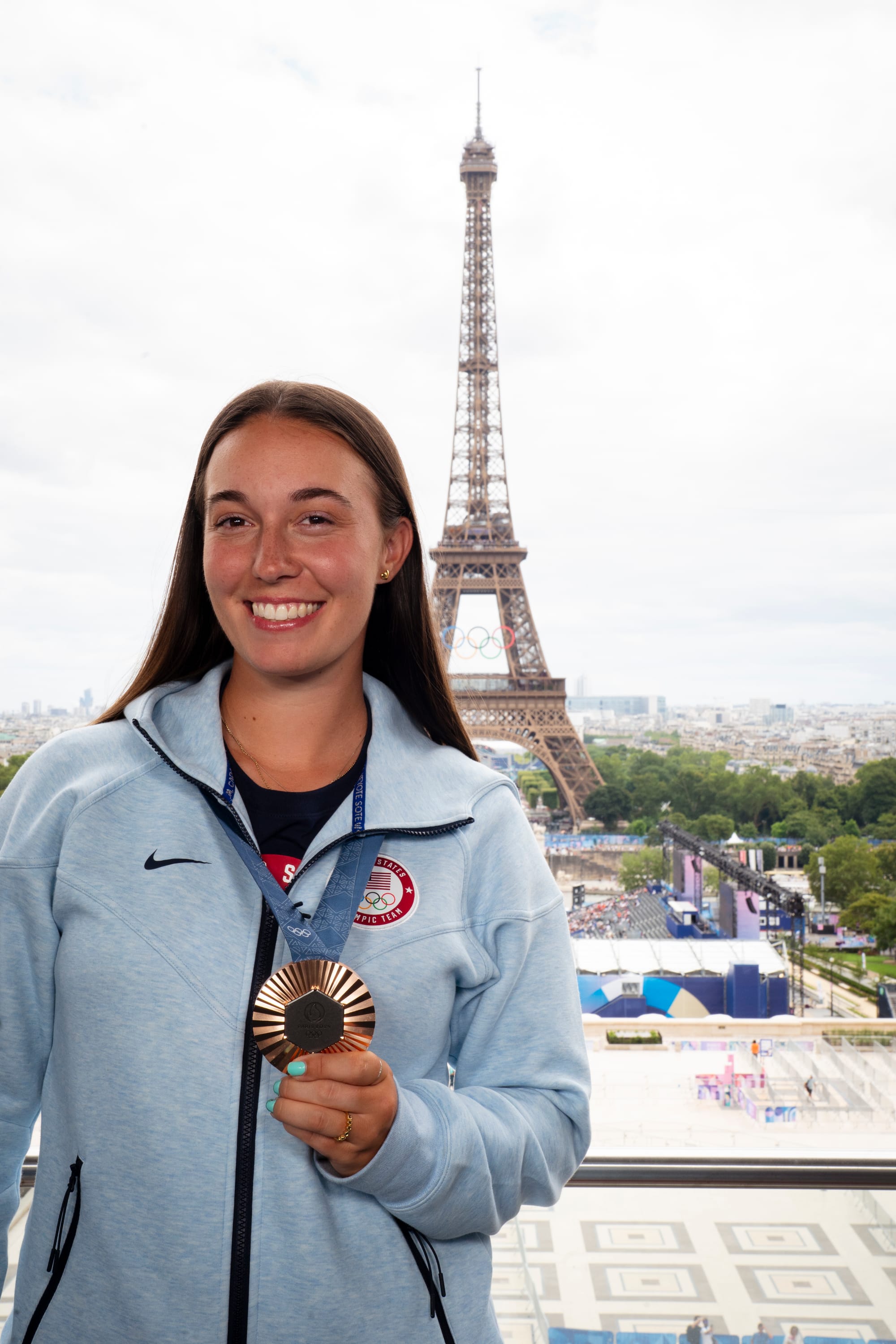In Casey Kaufhold’s world, there are two types of nervousness. There is the kind where her mind runs wild with all kinds of unhelpful thoughts, but her hands somehow remain steady. And there is the kind where her mind stays focused on the task at hand, but her hands shake like crazy.
Given the precision of her craft – given that she makes her reputation as one of the world’s best young archers by aiming an arrow at a target from dozens of meters away – neither is exactly what you would call ideal. But she can deal with the trembling hands more than the racing brain. And that’s what happened when she found herself competing in front of a crowd of roughly eight thousand people at the Olympic games in Paris.
“I felt like my mental process ran really strong,” she says, “but I was really shaky compared to how I normally am.”
As much as she’d steeled herself for it, Paris felt like an entirely novel experience to Kaufhold, who, at 20 years old, was the top-ranked female recurve-bow archer in the world heading into these Olympics. She had been to an Olympics three years earlier in Tokyo, but at that one, there was no crowd at all–not even her own family–and that was disconcerting in a very different way. Now, there were raucous fans all around, cheering on the hometown competitors from France. But there was also the heckler supporting one of her opponents, and that heckler rode her hard during one of her early-round individual matches in Paris.
The emotional culmination of achieving her goal was overwhelming. [Courtesy photos]
That kind of thing violated common courtesy in a sport that generally calls for silence when an archer draws back their bow, but Kaufhold was determined not to let it bother her. She won her match, but then in the round of 32, the pressure and the shaking got to her, and she lost to Lei Chien-Ying of Chinese Taipei, who was ranked No. 36 in the world. NBC called it a “shocking upset”; Kaufhold was furious with herself, and her Olympics could have ended right there if she’d let them.
“At first,” she said, “I felt like I didn’t have any purpose. I didn’t make one of my goals, so I’m done. It’s so hard, because I’m just really passionate about archery. You put all this time into one thing and it doesn’t go your way…”
But this was not the end by any means. Kaufhold still had to compete in the mixed team event with her partner, Brady Ellison, who is 15 years her senior. And Ellison was not about to allow those nervous tremors and that loud heckler to be Kaufhold’s only memories of Paris. Ellison understood Kaufhold could still leave Paris with a medal, but only if she found her purpose again.
“You have 30 minutes to be upset, sad, angry – whatever you want to be,” Ellison told her. “Then you’re going to put your bow back together and we’re going to shoot until we figure it out.”
Kaufhold spent that half-hour alone, dwelling on what just happened. She poured her frustrations into her journal and emerged with some perspective. She went to see her parents, who had traveled halfway across the world from their Lancaster, Pennsylvania, home to watch her. She worried, at first, that they’d be as disappointed as she was. “But they were still very proud of me,” she says, “and very encouraging.”
Kaufhold’s parents understood how much pressure their daughter tended to put on herself, in part because the sport was so ingrained in the family. This sport had been Kaufhold’s life since she was a toddler; it had been almost pre-destined for her to get here since before she was born. Kaufhold’s father, Rob, competed at James Madison University and was an alternate for the 1980 Olympics in Moscow (the United States wound up sending no one, of course, after boycotting those games). He now owns a renowned archery supply shop and school in Lancaster. Kaufhold’s mother, Carole, is an experienced bowhunter who met Rob when she came into his shop years ago.
This family's roots in archery go back generations and continue to be passed on. Casey recalls shooting a bow when she was three years old and started shooting at the club at her father’s shop when she was 10. She dreamed of a future in gymnastics until she broke her knee on a coffee table while practicing at home, and then archery became her focus. She started to win tournaments; when she was around 12, she beat her dad for the first time. By the time she was a teenager, she was shooting at a high level. She would pull back that bow and think to herself, This is my calling. This is what I was meant to do.
Casey, at age 20, is part of the sport's youth movement. [Courtesy photos]
She was, at the time of her rise, one of the youngest U.S. archers to reach the elite level in quite some time. She was only 17 in Tokyo, but now, at 20, she was part of a youth movement in the sport, with a handful of competitors around her age leading the way for the American team. Yet Kaufhold stood above them all in terms of her ranking. A child of the sport had become the future of the sport, and the future to her felt like now.
Those expectations also led to pressure. Those expectations brought up the nerves. Over the years, Kaufhold says, she often had trouble focusing on her own goals. She’s naturally a people pleaser, so she’d think about doing it for her family, friends, coaches, or sponsors, and that would only make her hands shake even more.
Kaufhold woke up the day after her loss in the individual event and reset herself for the mixed team event. Forget the expectations. She would do this one for herself. And if she kept that internal focus and Ellison did the same, who knows what might happen?
An hour before their first match in mixed team, Ellison and Kaufhold came up with an idea: They would alter their fundamental choreography. This was a timed event—you have 80 seconds to shoot four arrows–and they wanted to maximize each moment, so instead of one of them stepping up to shoot and circling around to allow the other to move in, they would each stand on a separate side, step in, step out, and save precious seconds.
“It was something to focus on other than everything else that was going on,” Kaufhold says. “It’s like, ‘Oh, I’ve got to remember to do this thing,’ instead of, ‘I wonder what our opponents are doing’ or ‘I wonder what the crowd’s doing.’”
Perhaps most importantly, the team’s new configuration gave Kaufhold time to take an extra deep breath before she shot. That calmed the shaking. And she found herself shooting far more easily than in the individual event the day before. When Kaufhold and Ellison won their quarterfinal match, Kaufhold let it all out: The frustration of the previous day and the excitement of the current moment culminated in an audible roar.
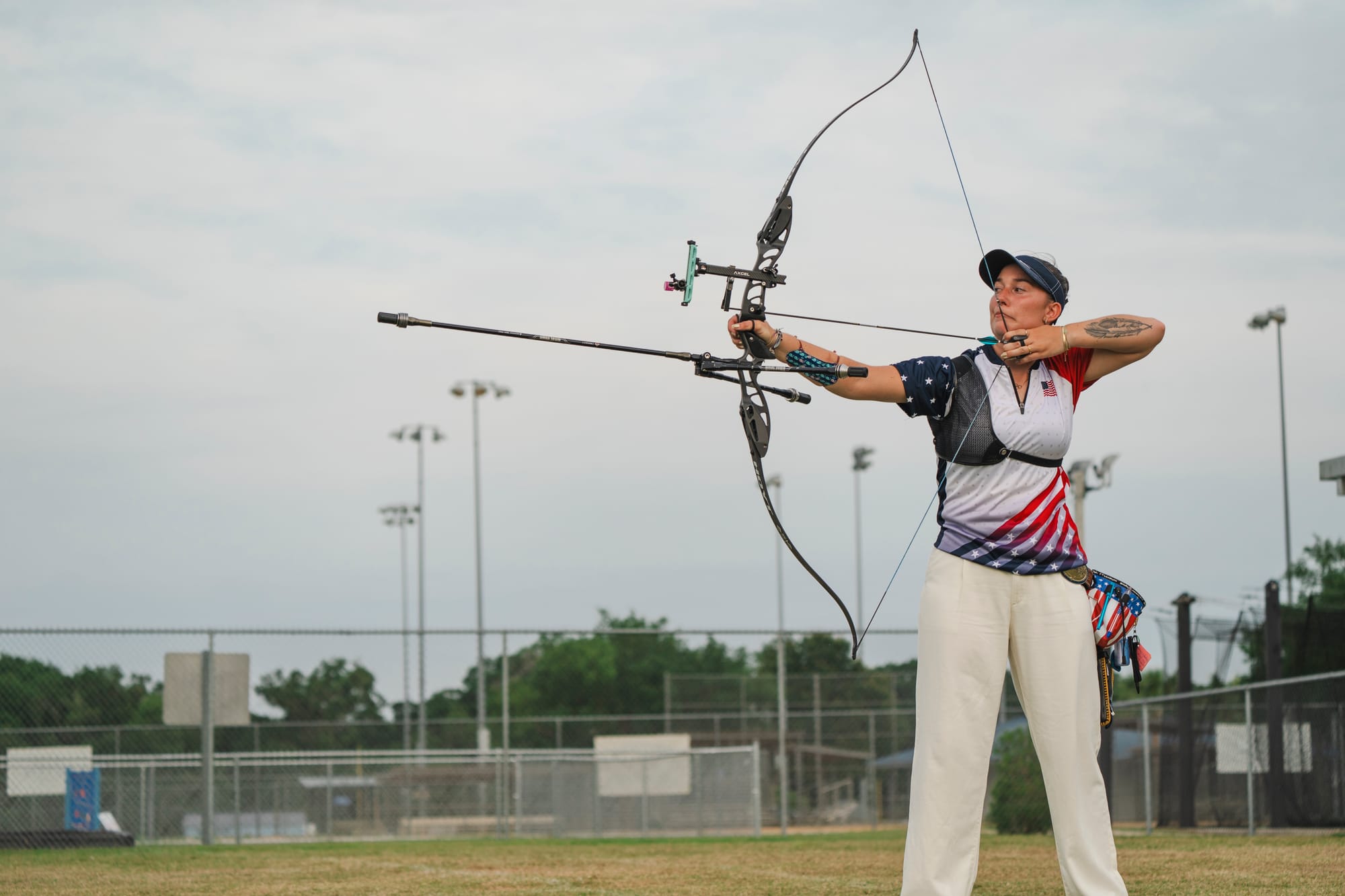
“For me, when we’re shooting good and we’re winning, I get pumped up,” she says. “And if you’re doing a really explosive sport, that’s good. But for archery, you kind of need to bring it down a notch. But I just felt all this excitement building up, and I had to let it out.”
And when she was done shouting, Ellison said, “OK, now bring it back down and focus again.”
Kaufhold found her breath again. She calmed her mind. And when she and Ellison defeated a team from India to win the bronze medal, it all came pouring out again. This time, it was like an out-of-body experience. She wept. She pumped her fists. She let out a banshee-like scream. “I went back and watched the video, and there was a part where I’m pounding at the floor, and then I'm holding my bow up in every direction and I'm yelling, and I was just like, ‘I don't even remember doing that.’ But that's just what came out.’”
It took hours before she could get through doping control and speak to the media and see her parents. But when she did, the emotion hit her again. “Other than winning the medal,” she says, “that was the best part.”

That bronze medal was her way of carrying on the family legacy. And she’s still young enough that she’s already focused on another medal of a different tint in 2028 in Los Angeles; assuming she qualifies, she’ll have the raucous home crowd on her side next time. Someday, she says, she imagines a future as a mother and perhaps an archery coach or teacher, or perhaps in some kind of creative field. Until that day comes, she’s enjoying her youth – she’d made a bet with her best friend that they would get matching tattoos if she won a medal, so they’re working on sketches for those.
But for now, for at least the next eight years, Kaufhold is doing the thing she believes she was destined to do.
“I don’t see myself loving any other job,” she says, “as much as I love shooting right now.”
